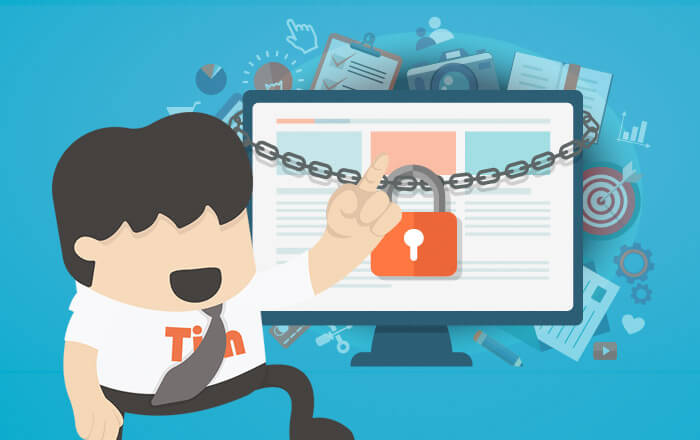Computer Encryption
Computer encryption works to scramble data text into a complex form. When you encrypt something on the computer, you mask the data using a special code. So, whether it’s for files, folders, CDs, USB flash drives, software, or cloud data, it becomes unreadable to those you haven’t authorised. If you want someone to read this data, they must obtain the key to decrypt it or authorised access.
Imagine you want to send a secret message to your friend, but you don’t want others around them to be privy to this information. So, you decide to use a special code which can only be deciphered by your friend and no one else. When you write your message, you write it in code. What you’ve done here is an example of an encrypted message.
Popular movies like The Imitation Game have made computer encryption very famous. But why exactly is encryption so important and how can it help your business?
Keeping your data away from the wrong hands
Every organization has thousands of files that are constantly shared back and forth between co-workers and managers. During their journey, there is always the risk of these files being intercepted and falling into the wrong hands. Unfortunately, in these cases your business’ data may be used for fraudulent activities.
This is what encryption prevents. Encryption is essentially a scrambling of the data into structures which are unrecognizable to any person. Only with a decryption code can you access and read the data. When you encrypt the file you’re about to share with a colleague, it ensures that nobody unauthorised gets access to your sensitive data along the way.
And although it may seem unnecessary, computer encryption is often a crucial step in safeguarding your work’s intellectual property. Don’t risk leaving your sensitive data exposed or assume that a hacker would not be interested in it.
Computer encryption is especially useful when organisations share sensitive data like customer information, financial data, corporate legal agreements, and payment related data. If you lose your laptop, CD or USB drive, or your password is accessed, your data will inevitably become accessible to hackers. In these circumstances, encryption offers an extra layer of protection to ensure that your confidential corporate data is kept safe.
Encryption makes it very difficult for people to access your data. At the same time, it’s important to remember that no computer encryption software will be 100% efficient. Overall, it’s always best to speak to your IT support provider to get your hands on the best encryption tools.
How can you encrypt your company data?
To encrypt and decrypt data, you need to use “keys.” These keys are similar to codes, which you need to use to unscramble your data. The two methods of encryption vary in the way these keys are used:
- Symmetric encryption
Here, you use a single key to encrypt your data. If you wish for someone to access this data, this single key needs to be shared with that individual. The key acts like a password, decrypting the data once you input the correct key. - Asymmetric encryption
In this instance two keys are used to encrypt and decrypt data – a public key and a private key. The user who has the data needs both the keys to access it. The public key is made available to everyone, while the private key is only provided to the individual who first encrypted the data. This key needs to be shared if the data is to be made accessible.
Typically, asymmetric encryption is preferred over symmetric encryption as it affords users a greater degree of business IT security.
Types of computer encryption
So, what can you encrypt on your computer?
- Files and folders
In this type of encryption, you can encrypt only specific files and folders which you want protected. This is useful if you have a small company and all your employees access data from a common pool. In this case, you can use this to encrypt only select files which you need to share confidentially. - Whole/Full-disks
This type of encryption is used to encrypt all the data on your computer. Here everything – CDs, USB drives, files, cloud data, etc. – are all encrypted. This offers the most comprehensive type of protection to your computer.
Nowadays, most operating systems like iOS and Windows have built-in encryption software, which you can use to encrypt all the data on your system. All you need to do is configure your system’s settings, and your data will be encrypted automatically.
If you need any advice on computer encryption or are seeking a reputable IT service provider to do it for you, simply reach out to our experienced team! So don’t hesitate contact us here if you would like to request a quote.
